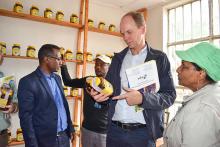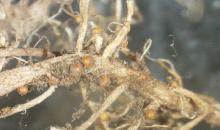Beekeeping in Ethiopia: icipe-EU partnership
Submitted by bmwashi on Tue, 2018-07-24 14:48The number of Ethiopian farmers using modern beekeeping technologies introduced by the International Centre of Insect Physiology (icipe), has increased eight-fold over the past seven years, from just 120 in 2011 to 900 by end of 2017. Significantly, more than one third of these farmers are women, in a country where beekeeping is traditionally considered a male-only occupation.


